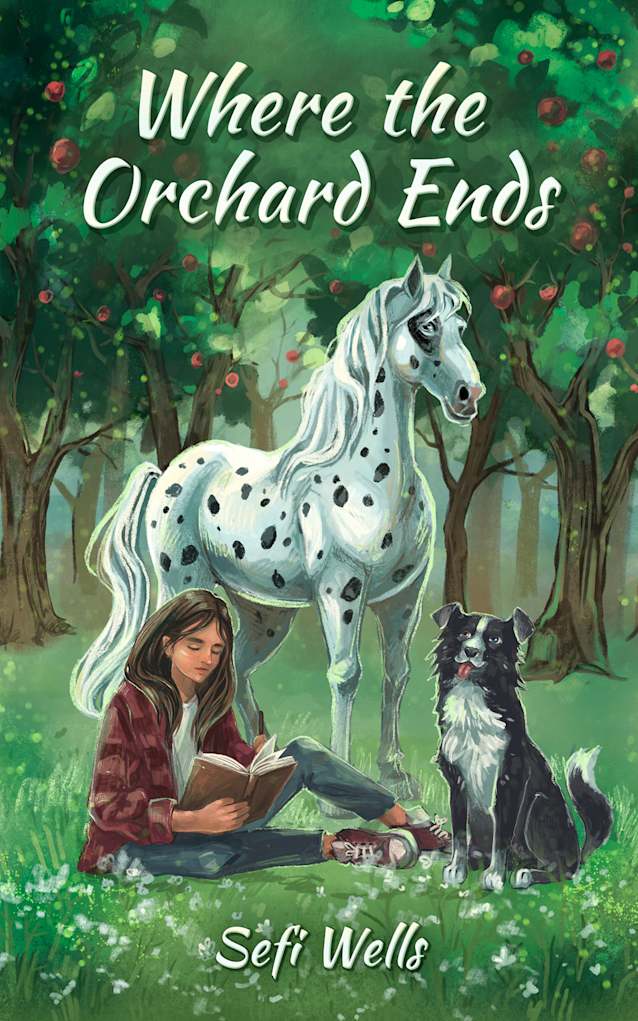Where the Orchard Ends
About
After twelve-year-old Wren Harper's mother succumbs to addiction, her world crumbles into silence. Sent to live with the grandmother she barely knows in rural Oregon, Wren hasn't spoken a word in months. But when a violent storm reveals a wounded horse trapped in a ravine at the edge of her grandmother's apple orchard, Wren makes a choice that will change everything.
The mare, scarred and terrified, bears the marks of severe abuse. Wren names her Talowa…"to sing," and begins secretly nursing her back to health in an abandoned shed where the orchard meets the wilderness. As a bond forms between the traumatized girl and the injured horse, Wren finds herself whispering words she's kept locked inside.
But just as Talowa begins to heal, her former owner arrives, determined to reclaim his "property" at any cost. With time running out and danger closing in, Wren must find her voice again, not just to save Talowa, but to save herself.
In this moving novel, Sefi Wells weaves a powerful story about grief, healing, and the unexpected connections that help us recover what we've lost, including ourselves.
Praise for this book
Where the Orchard Ends is a quiet and emotionally stirring novel about grief, healing, and the deep connections that form when words fail. It follows twelve-year-old Wren Harper, who hasn’t spoken in seventy-three days after her mother’s death. Sent to live with her grandmother on an apple orchard in the Pacific Northwest, Wren drifts through silence and sorrow, until a storm leads her to a wounded Appaloosa mare, a wild horse who’s just as lost and broken. In that fragile, unspoken bond between girl and horse, the story slowly opens up to become a tale about trust, resilience, and finding a way back to oneself.
This book pulled at me in ways I didn’t expect. The writing is gentle and raw, full of details that make even silence feel loud. Wren doesn’t say a word for much of the book, but her thoughts and emotions are laid bare through beautiful imagery, quick sketches, and soft moments between her and her grandmother. The mare, Talowa, becomes more than a metaphor, she’s a mirror. The way Wells writes their connection is tender without being saccharine. And Mimi, Wren’s grandmother, is quietly wonderful. She gives Wren space, makes mistakes, and listens better than most people ever do.
Wren’s pain is sharp and honest, but so much of it is held back behind carefully drawn scenes. The pacing can feel slow, especially in the middle, where the book lingers on similar beats. Still, those moments aren’t empty. They just simmer. And honestly, the slower parts give the reader a chance to breathe, to sit in the orchard with Wren, to feel the weight of memory pressing down alongside her.
This book is best for readers who are okay with stories that unfold like mist slowly dissipating. It’s perfect for teens who feel out of place, for adults remembering the ache of being twelve, and for anyone who’s ever needed something unspoken to feel a little less alone. Where the Orchard Ends doesn’t shout. It hums.
